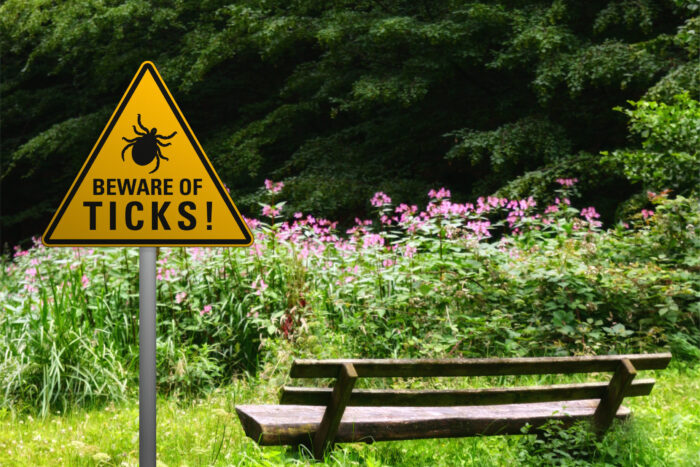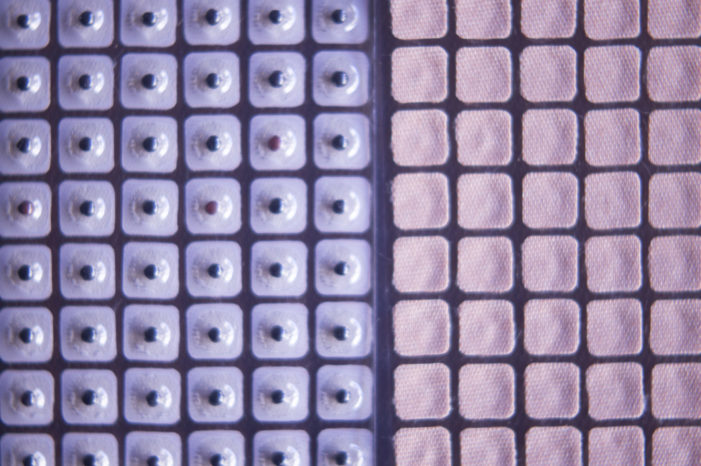
What is the alpha gal allergy?
The term alpha gal is an abbreviation for the sugar galactose-alpha-1,3-galactose. This sugar resides in mammals that walk on four legs, like cows and pigs. It is not found in humans, apes, or monkeys. When a tick bites a mammal such as a cow, the tick carries the alpha gal sugar. When that tick bites a human, the tick injects the sugar molecules into the human. This can result in an allergic reaction to the alpha gal sugar. Subsequently, an allergic response to red meat can develop. This is why the alpha gal allergy is often called the “red meat allergy”.
As a human receives more tick bites, their antibodies against alpha gal increase. Consequently, the likelihood of developing an allergy also increases. In addition to red meat, alpha gal resides in many products made from mammals. This includes medications, cosmetics, vaccines, gelatin, and milk products. Exposure to any of these items can initiate an allergic reaction. Alpha gal allergies can affect individuals of all ages. Symptoms vary from one individual to another. While alpha gal allergies are most frequently found in the eastern and mid-western United States, cases also exist in other parts of the country. Europe and Australia have identified cases as well.
Alpha gal allergy symptoms and reactions
Most allergic reactions occur immediately after consuming food with alpha gal. However, because the alpha gal sugar takes a long time to digest, an allergic reaction may not occur for up to eight hours after the food is eaten.
Symptoms can be mild like headaches, congestion, and sneezing and itchy skin. They can be more serious like hives, eczema, difficulty breathing, fainting, dizziness, and swelling. People may also experience symptoms like abdominal pain, diarrhea, nausea, and vomiting. In extreme cases, someone with an alpha gal allergy may go into anaphylactic shock. This is a serious emergency condition. It requires immediate medical attention and treatment.
Medical resources state that the alpha gal allergy may resolve on its own after about three to five years. Unfortunately, this may not be the case when an individual receives multiple tick bites over time.
Alpha gal sources
Alpha gal is surprisingly prevalent in our environment. In addition to red meat, alpha gal can be found in the following items:
- Milk products
- Gelatin
- Lanolin found in: Cosmetics, lipsticks, ointments, lotions, clothing (wool, cashmere, suede, leather, alpaca), animal dander
- Stearic acid found in: Cosmetics, soap, shaving cream, lubricant, detergents, house cleaners, and textile softeners, forming and softening plastics
- Drugs prepared from animals: Zyrtec, Benadryl, Simvastatin, Omeprazole (Lasec, Prilosec, Zegerid), Synthroid, Cetuximab, Heparin, Ceron 10, Gelatin capsules, medications containing stearic acid and magnesium stearate
- Devices like pig’s heart valves, grafts
Alpha gal allergy diagnosis
A variety of research articles have been published on the alpha gal allergy. For example, the article Alpha-gal syndrome from the Mayo Clinic is a great resource. This article shares that the allergy is commonly diagnosed through a blood or skin prick test. The guidance given by most medical facilities is to avoid exposure to alpha gal. Additionally, another informative article published in the Journal of Allergy and Clinical Immunology in 2020 is titled Diagnosis and Management of Patients with the α-Gal Syndrome. This study lists auricular acupuncture as a treatment therapy for the alpha gal allergy.
Alpha gal allergy treatment
Dr. Nader Soliman created and patented a groundbreaking technique called the Soliman Auricular Allergy Treatment (SAAT). SAAT is a simple technique. The treatment utilizes a small needle retained in the ear with medical adhesive tape. Then, after the treatment, the needle stays in the ear for a period of 3-4 weeks. Dr. Soliman found this technique to provide the strongest relief from alpha gal allergy symptoms among all known acupuncture and medical techniques. Dr. Soliman employs this technique with great success for over 15 years now.
A research article published in the American Journal of Biomedical and Life Sciences titled Effect of Soliman Auricular Allergy Treatment (SAAT) on IgE-mediated Reactions Due to Exposure to Mammalian Meat Oligosaccharide, Galactose-α-1,3-Galactose tested the SAAT technique. The study found a 94.8% success rate with patients who underwent the SAAT treatment for their alpha gal allergy. In addition, an article published in the Medical Acupuncture Journal titled Successful Treatment for Alpha Gal Mammal Product Allergy Using Auricular Acupuncture: A Case Series concluded that the SAAT method showed effectiveness in the majority of patients and no adverse reactions were noted as a result of auricular acupuncture.
We are very excited to offer the SAAT treatment at HAVEN Acupuncture. Want to talk about how acupuncture and Chinese medicine can help your alpha gal allergy? We’d love to hear from you. Reach out and email us through our website or call or text us at 910-622-4269.
About the Author
Ericca Burke is the owner of HAVEN Acupuncture & Chinese Medicine. She studied SAAT directly from Dr. Soliman, and she is a certified SAAT practitioner. Ericca sees patients at her office in Wilmington, NC. Click this link to read more about Ericca.
About HAVEN Acupuncture & Chinese Medicine in Wilmington, NC
HAVEN Acupuncture & Chinese Medicine is an acupuncture and Chinese medicine practice located in Wilmington, NC just minutes from beautiful Wrightsville Beach. Click this link for contact information and directions. Click this link for a listing and description of services offered.

